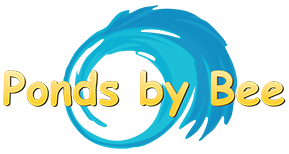A pond is meant to be a fully balanced ecosystem that host living plants and animals and good water quality plays a significant role in this habitat. Finding this balance can sometimes prove to be challenging, so here are 6 tips to a clean and properly balanced ecosystem.
1. Choose the correct pump for your size pond – There is a pump for every pond, but which is the right one for you? The rule of thumb here is circulating entire water volume of your pond at least once every hour. Most pumps will tell you how many gallons they pump per hour. As long as you can estimate how many gallons of water is in your pond it should not be difficult to select the correct pump.
2. Remove pond debris before it decays – If you have a skimmer installed in your pond it will take care of most of your surface debris, however during seasons with heavy leaf fall and can prove to be an overwhelming task for your skimmer basket. If this is the case you may want to grab a pond net and skim leaves or small sticks from your pond before they have a chance to sink to the bottom and decay. High amounts of decaying debris can cause ammonia levels to surge in your pond.
3. Proper pond filtration – Just like your pump, your pond’s filter should also match the size of your pond. Most filters are based on ideal pond conditions however if you exceed those you will likely need to increase filtration. Upsizing your filter is often a good idea just to be safe, that way your pond is prepared to handle any changes in the water quality. It is also wise to regularly clean your filter pads at least twice a year. We usually suggest cleaning them every 6 months.
4. Maintain a healthy fish population – 10” of fish in your pond for every 100 gallons is the rule of thumb here. If you exceed this number than your pond is likely to become imbalanced. Excessive fish waste will eventually lead to poor water quality in a overpopulated pond. Consider finding them new homes if you have too many.
5. Don’t over-feed fish – If you feed your fish too much or too often it can lead to poor water quality for 2 reasons. First the excess food that is not eaten will eventually fall to the bottom of the pond and decay. Reason 2 is your fish will overeat which will lead to excess fish waste. Only feed your fish what they can eat within 2-3 minutes. It may take a time or 2 to figure out what the perfect amount is but as long as you find consistency in how much they can consume it will keep from causing any water clarity problems in you pond.
6. Have a proper balance of plants – At the peak of the season you should have between 40% and 60% of your ponds surface area covered or shaded by plants. If you have too many plants, it can cause oxygen deficiencies at night due to photosynthesis. Don’t forget your fish need oxygen too.
